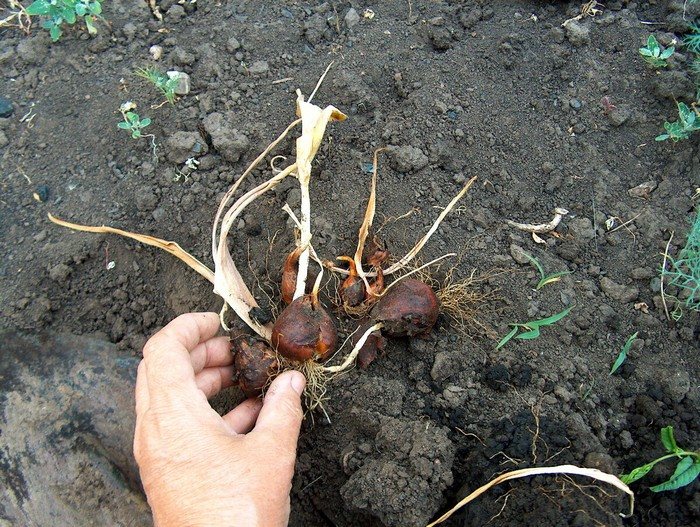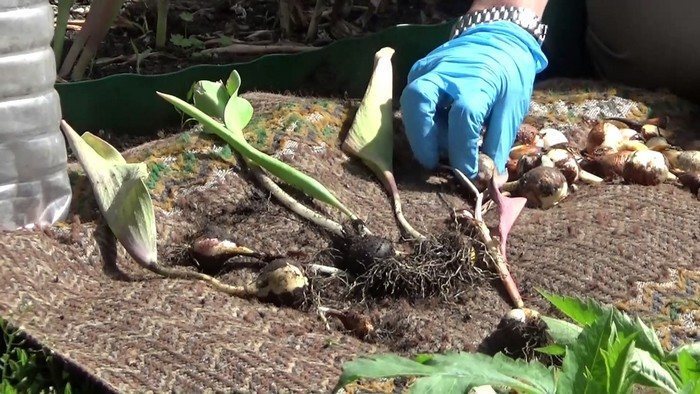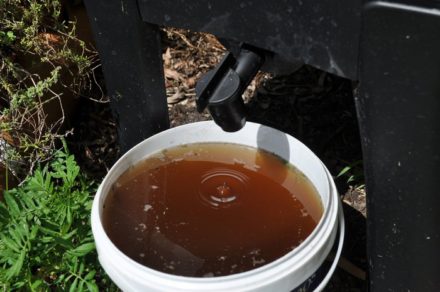Tulips need care not only during the flowering period, but also after they bloom. The roots continue to accumulate nutrients to form buds again next year. To ensure that the bulbs are not damaged and do not lose their decorative properties, you should follow simple tips.

Trim flower stalks in a timely manner
After the petals fall, the plant begins to direct all its forces to the ripening of the seed box. To prevent this from happening, the peduncle must be carefully trimmed. This way the bulbs will be strong.
Proper care
Even though the plant has faded, it must be watered regularly. Watering is carried out once a week. It is also important to apply potash fertilizers. In the absence of nutrients, the bulbs become depleted and dry out.
Digging
To save tulip roots, it is recommended to dig them up. It is recommended to carry out digging at the end of June. Digging up preserves all the decorative characteristics of the plant.
Tulips that remain in the ground experience a lack of nutrients. Therefore, they very often become weak. Digging allows plants to develop immunity to diseases and delight with abundant flowering.

Bulb processing
The dug up bulbs should be treated with manganese. To prepare the solution, add 2 grams to a liter of water. manganese (at the tip of the knife).This will create a light pink solution.
The solution is sprayed on the planting material from all sides and left to dry in a warm place, but protected from direct sunlight.

Proper storage
Planting material must be stored in sawdust and a wooden box. The most suitable place is the basement. If there is no sawdust, you can use onion peels. Onion skins prevent the risk of rotting bacteria.

Regularly check and reject damaged specimens
During the storage period, once a month, planting material must be checked and damaged ones removed. You should also ensure that the sawdust does not become wet. Because when moisture appears, the bulbs will begin to rot.
To preserve tulip bulbs, you need to properly prepare them and only then dig them up. Prepared planting material is stored in a cool place, protected from drafts and moisture. The material must be regularly inspected and damaged specimens must be rejected.













Thanks for the good advice
Thanks for the helpful tips.